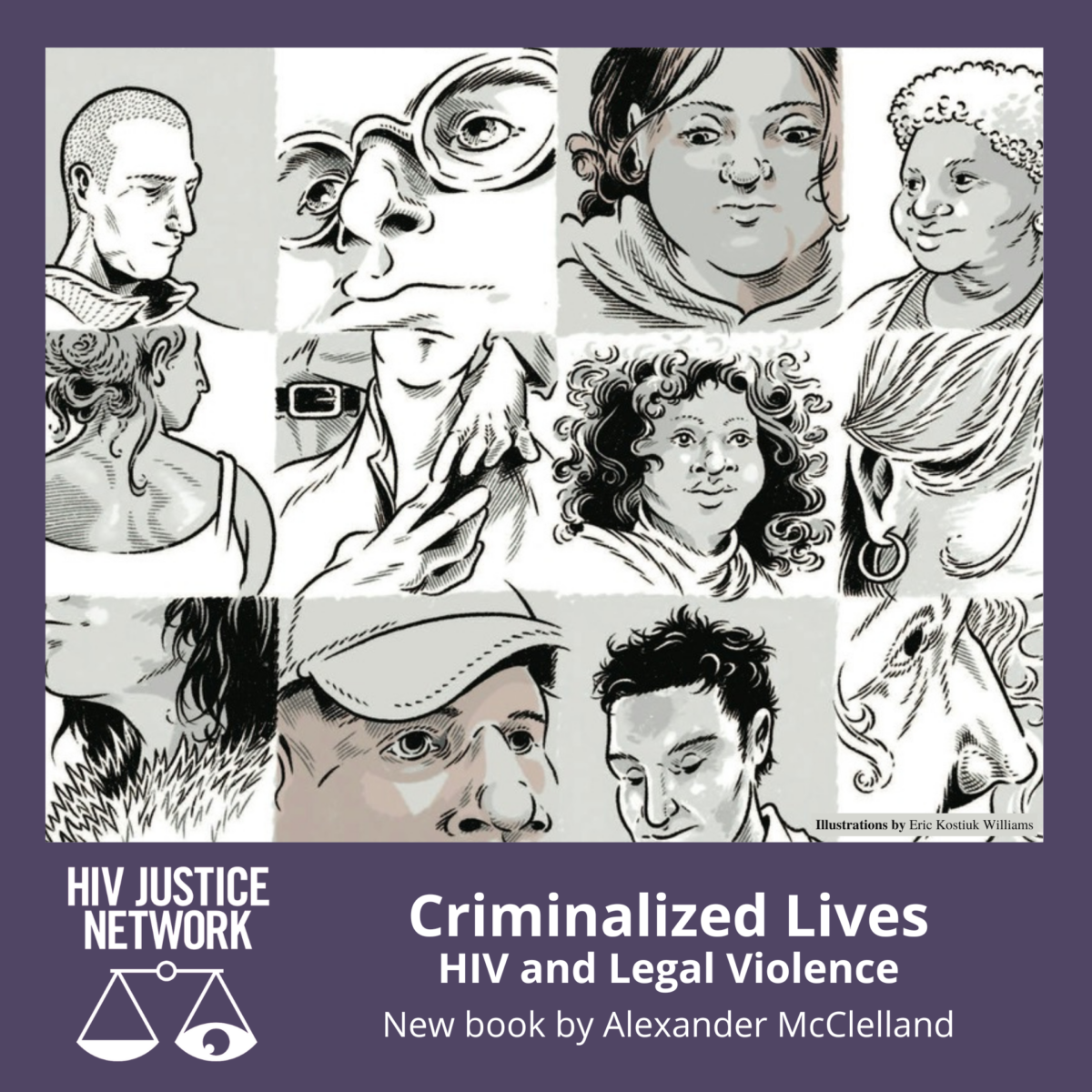
This week sees the publication of a powerful and important new book, Criminalized Lives.
Based on 24 interviews conducted across Canada over two years with 16 people who were criminally accused of not disclosing their HIV-positive status, author Alexander McClelland, details the many complexities of disclosure, and the violence that results from being criminalised.
McClelland, who is living with HIV, works as a criminologist at Carleton University, in Ottawa, Canada. He is also a member of HJN’s Global Advisory Panel (GAP) and the Canadian Coalition to Reform HIV Criminalization.
Canada has long been a hot spot for HIV criminalisation where the act of not disclosing one’s HIV-positive status to sex partners has historically been regarded as a serious criminal offence. The book describes how this approach has disproportionately harmed Black and Indigenous people, women, gay men, and the poor.
While the book focuses on Canada, it presents lessons for those of us working around the world to end HIV criminalisation, especially in contexts where general criminal laws – like bodily harm, sexual assault and even attempted murder – are being applied to instances of alleged HIV non-disclosure.
Accompanied by a foreword by fellow HJN GAP member, US-based leading HIV criminalisation activist Robert Suttle, and portraits from queer comic artist Eric Kostiuk Williams, the book’s moving interviews illustrate that criminal legal systems are unprepared to handle the nuances and ethical dilemmas faced everyday by people living with HIV.
By offering personal stories of people who have faced criminalisation first-hand, McClelland questions common assumptions about HIV, the role of punishment, and the violence that results from the criminal legal system’s legacy of categorising people as either victims or perpetrators, and the complicity of public health systems in processes of criminalisation.
The book is distributed internationally via Rutgers University Press where you can purchase paperback, hardback, and ebook versions.
Five things you can do to amplify Criminalized Lives:
- Ask your local library to carry the book.
- Host a conversation on the book in your community to help mobilise for change.
- Share your thoughts about the book on social media to generate conversations about the harms of HIV criminalisation.
- Review the book in a publication or online.
- Include the book in a course syllabus.